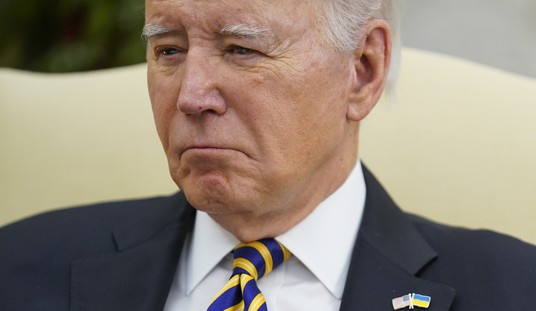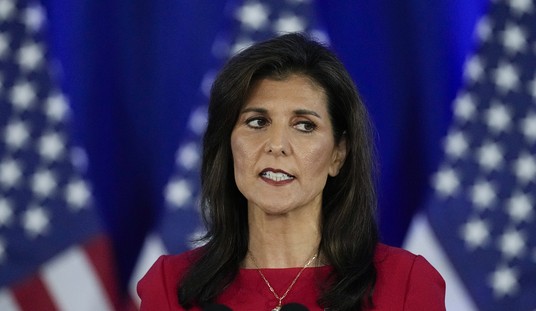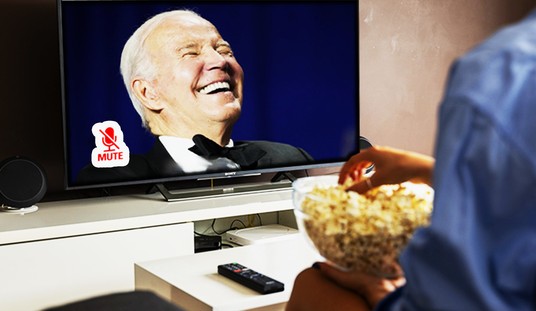Over and over again I’ve written about what President Barack Obama should do. Now the voters have given him a new chance. He could take it and change his policy. I don’t believe he will do that, but let me lay out both what he’s been wrong about and what he should do, just in case Obama is seeking a different approach.
What he did in the first term and will do in the second term: fostered revolutionary Islamism in Egypt, the Gaza Strip, Syria, Tunisia, and Turkey.
What he should have done and should do now: what Franklin Rooosevelt did in 1941, Harry Truman did in 1947, and George Bush in 1990 — led an international coalition that will systematically fight against a totalitarian enemy.
Today, that means revolutionary Islamism. The loose coalition should include Europe, anti-Islamist Arab regimes (Morocco, Algeria, Jordan, Saudi Arabia, and the Gulf Arab states), and pro-democratic opposition movements (Turkey, Lebanon, Iran, and Syria).
What he did: supported Islamist opposition groups.
What he should have done: supported anti-Islamist and moderate opposition groups.
What he did: pressed Israel to reduce pressure on the Hamas regime in the Gaza Strip and helped bring about an Egyptian regime that backed Hamas.
What he should have done: supported a reformed — not overthrown — Egyptian regime and Israel in opposing Hamas and subverting its rule.
What he did: gave support and aid to the Muslim Brotherhood regime in Egypt despite paying lip service to defending women’s rights and Christian rights and the Egypt-Israel peace treaty.
What he should have done: clearly conditioned aid on Egypt to protecting women, Christians, and moderates; taken a strong stand on the regime’s permitting cross-border attacks on Israel and gutting the peace treaty. The Obama administration has, and will have, no credibility with an anti-American extremist and anti-Semitic Egyptian government.
What he did: celebrated the Turkish regime as a great example of democracy and moderate Islam. He also did nothing as that regime went into a non-shooting war with Israel, backing Hamas, Hizballah, and Iran; and he rewarded Ankara with special treatment, including letting it organize the Syrian opposition.
What he should have done: without provoking a conflict, used U.S. leverage to press Turkey’s rulers to change their policies. He should have offered no rewards without their help in promoting U.S. goals. He should have been suspicious of the regime’s intentions and noted its suppression of democracy within Turkey.
What he did: accepted the Lebanese government dominated by Hizballah and backed by Iran and Syria.
What he should have done: backed the moderate Lebanese opposition that opposed the regime in order to combat the Iran-Syria bloc.
What he did: backed the Muslim Brotherhood in Syria’s civil war and did not interfere with weapons going to Salafist groups as long as they were not al-Qaeda affiliates.
What he should have done: supported moderates and anti-Islamists in Syria against both the Islamists and the regime.
What he did: acted as if all of Libya’s problems had been solved; tried to please the regime and show his niceness by not intervening to save Americans in the September 11 Benghazi attacks.
What he should have done: known that the U.S. is involved in an ongoing conflict in Libya and there will be more attacks in future.
What he did: nothing.
What he should have done: investigated the Benghazi incident seriously and honestly (his choice for chief investigator, former State Department hack Thomas Pickering, is an opportunist who will write whatever the White House wants), got those responsible, and made sure that nothing like that ever happens again. Perhaps an apology to the families of those killed would be in order.
What he did: pushed the “peace process” for two years, though then he did get the idea it wouldn’t work. He also opposed, albeit starting far too late, Palestinian Authority (PA) unilateral statehood bids. But will he continue that revised policy into a second term?
What he should have done: realized the peace process isn’t going anywhere, and understood that’s because of PA intransigence and the Hamas challenge that is radicalizing even further Palestinian policy. When the PA subverts U.S. policies, he needs to be willing to pressure and criticize it.
What he did: said he supported the rights of Christians and women from (Islamist) repression. But he never did anything about it. Zero. He cozied up to Syria and Iran at the very moment they were violently suppressing dissidents at home and opponents abroad.
What he should have done: genuinely worked to protect the rights of Christians and women as well as the lives of moderates by using leverage.
What he did: said that al-Qaeda was defeated.
What he should have done: understood that al-Qaeda is not finished by any means. And its partner the Taliban is still going strong. But this issue made less difference, since U.S. policy did fight al-Qaeda anyway.
What he did: continued the withdrawal from Afghanistan and tried to cut a deal with the Taliban.
What he should have done: continued the withdrawal from Afghanistan, but followed a realpolitik policy and set into place a strong set of patron-client relationships with those willing — albeit for their own interests — to keep the Taliban from taking power. The problem is that once U.S. forces are out, the regime is likely to collapse and possibly give way to a revolutionary Islamist, anti-American government.
What he did: although the U.S. government conducted drone strikes and the killing of Osama bin Laden, unilaterally, it generally continued to pour money into Pakistan despite its lack of cooperation, activity as a major sponsor of terrorism, and institutionalized anti-Americanism, persecution of Christians, and support of radical Islamist ideology.
What he should have done: moved away from Pakistan and rebuilt relations with India.
What he did: forbade an honest discussion of the enemy and threat in the U.S. military; minimized or denied that attacks like the one at Fort Hood were terrorist attacks.
What he should have done: let the U.S. military educate its people about the actual threat instead of forcing them to pretend otherwise.
What he did: put tough international sanctions on Iran and kept the possibility of an attack against nuclear institutions on the table. He will try to make a deal with Tehran by letting it do limited enrichment and drop sanctions in exchange for promises not to develop nuclear weapons. The choice is up to Tehran as to whether to negotiate a deal or simply use talks as one more stalling technique while continuing to hurry toward getting deliverable nuclear weapons. When Iran does get nuclear weapons he won’t do anything; this includes not supporting an Israeli attack.
What he should do: If he wants to negotiate, he should first gain credibility in Tehran by being tough on Iranian interests everywhere in the region — he’s doing this in Syria. He should bargain toughly and not do anything to get a deal. When Iran does get nuclear weapons, he should put in place a really tough containment system that would counter Iran’s subversion and terrorism, give strong backing to the internal opposition, and squeeze Iran to the maximum extent. If an honest assessment shows an Iranian plan to attack Israel or if Tehran seems likely to give nuclear bombs to terrorists, the U.S. government should support an Israeli attack. By not being credible, Obama makes it more likely that Iran will obtain nuclear weapons; that outcome will likely lead to war.
Shall we go on? Well, the U.S. government will go on doing these things for the next four years.








Join the conversation as a VIP Member